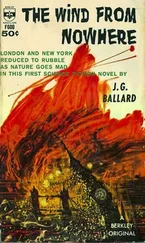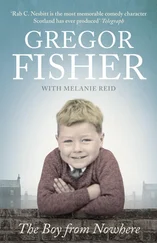“Not a damned thing. You?”
The old man shook his head. He was peering out a hole in the door about a foot square that closed and opened with a hinged panel of pine. The gun port gave fairly good visibility without exposing a defender to enemy fire. “But that don’t mean they’re not out there,” he said.
Oates nodded. They were out there all right, but how many? Two, three . . . a dozen? That many would be too hard to handle for an old coot with milk in his eyes and a drunk.
Oates shifted position to ease a cramp in his leg and waited. Bees droned in the sage outside. A jay flew into a cedar and the branches stirred as it moved from place to place. The silent sky was an inverted, brassy blue bowl and heat waves shimmered along the crest of the ridge. There was no shadow to be seen anywhere and the trees drooped like tired belles after the ball’s last waltz has been played.
The hot, drowsy day invited heavy-lidded slumber, but Oates forced himself to stay alert. To sleep now was to invite death.
A sudden movement at the bottom of the ridge instantly attracted Oates’ attention. There! He saw him, about fifty yards away, an Apache crouched low, running for a clump of brush, a rifle in his hands. Oates shoved the Colt out the gun slot, sighted on the running warrior, and squeezed the trigger.
The sharp bang of the .44 was loud in the cabin, but Oates was not aware of it. He looked through a drift of smoke but could see no sign of the Indian. The man had vanished.
“Too far, boy,” Yearly said. “I seen him my ownself, but before I could draw a bead on him, he was gone.”
“Maybe I winged him at least.”
“You didn’t.” The old man’s tone of voice was such that it left no room for argument.
A moment later Oates learned the hard way what it meant to fight Apaches.
A bullet chipped wood from the top of the gun port, then ripped venomously across Oates’ neck before thumping into the far wall of the cabin.
Stung, Oates reeled back and slapped a hand to his neck. It came away bloody.
At the door, Yearly fired, sighted, fired again.
“You all right, Eddie?”
“I got shot in the neck. I’ve never been shot before.”
“Stay there.”
Yearly crossed the smoke-streaked room and glanced at Oates’ wound. “Yup, he burned you pretty good. You’ll live, though.”
The old man retraced his steps to his post at the door. Oates said to his retreating back, “I never knew Apaches could shoot that good.”
“Some can, some can’t, just like white men.” Yearly looked over at the younger man. “Fire a couple of shots. Let ’em know you’re still alive.”
This time Oates approached the gun port more warily. He thumbed off a couple of shots in the general direction of the ridge, then ducked behind the cover of the cabin wall.
There was no answering fire.
“Nothing stirring out there,” Yearly said.
Oates was feeding shells into the Colt with an unsteady hand. “Maybe they’ve gone.”
He looked out the gun port. A wind strolled through the juniper on the ridge and above the Canyon Creek Mountains the white clouds were tinged with dark gray. Oates thought he heard a distant rumble of thunder.
“They’re close, Eddie,” Yearly said suddenly.
A whinny came from outside as the mustang reacted to a smell it did not like.
“Damn it, boy, the Apaches are in the corral!” Without another word Yearly flung out the door, cursing a blue streak. Oates, his belly cartwheeling, went after him.
There were three of them.
One had a rope around the mustang’s neck. A second was leading the Morgan out of the corral. The third, a tall Indian wearing a soldier’s coat with sergeant’s stripes on the sleeves, stood by the corral gate, a Sharps .50 in his hands.
Yearly and the tall Apache fired at the same time. The Sharps bellowed and kicked like a mule. The bullet split the air beside the old man’s head. Yearly’s shot took the Mescalero low in the belly. The Indian went to one knee, working his rifle.
The Apache leading the Morgan wheeled and his rifle trained on Oates. He had no time to follow Yearly’s instruction to assume the duelist’s position. Oates held the Colt in both hands, shoved it out in front of him and fired. The Apache fell backward, his rifle spinning away from him.
Yearly was firing. The tall Indian in the soldier’s coat was hit again. He rose to his feet and staggered, trying to bring his rifle to bear. Oates shot into him and the man took a couple of steps, then crashed onto his face.
Both men swung their guns, looking for the remaining Apache, but the man had vanished like a puff of smoke.
His ears ringing from the gunfire, Oates stepped through the smoke drift to Yearly’s side. “You hurt?” he asked.
The old man shook his head. “You?”
Oates didn’t answer. He looked at the dead Apaches. The tall man was the one he vaguely recalled seeing at the creek, the one who had laughed at Sammy Tatum’s drawings. The youngster by the Morgan had a scar on his cheek, and somewhere among the dim recesses of his alcoholic’s memory, Oates remembered him too.
Then it slowly dawned on him—he had killed one of them and helped dispatch the other.
Yearly saw the conflict in the younger man. “The first time is always hard,” he said.
“They were alive and now they’re dead,” Oates said. “It’s a lot to figure.”
The old man smiled slightly. “Would you rather it was you, lying facedown in horseshit? The Apaches knew what could happen and they took their chances.”
Oates lifted his eyes to Yearly’s face. “I don’t feel anything, good or bad.”
“That’s how it should be. A man should never feel good about killing another human being. But if he kills in a fair fight, when it was either you or him, he shouldn’t feel bad about it either.” The old man stepped over, closed the corral gate and turned to Oates again. “You catching my drift, Eddie?”
The younger man nodded, never taking his eyes off the dead Apaches, and Yearly said, “You’ve killed your first man, but I got a strange feeling in my gut that he won’t be your last.”
“I guess we should bury them,” Oates said. He watched the wind pick up a strand of the tall Indian’s hair and blow it across his still face.
“Take their guns and ammunition belts, but leave the bodies where they lay,” Yearly said. “The Apaches will come for their dead.”
“Damn,” Oates said, “but I could sure use a drink.”
Chapter 11
At first light Eddie Oates hitched the Morgan to the wagon. The Apaches’ bodies were gone.
He and Yearly ate a hurried breakfast, then headed for Black Mountain. Oates carried the Colt in his pocket and the old man kept his rifle close.
They loaded the cinder block they’d cut from the side of the peak earlier, then returned to the cabin. They saw no sign of Apaches.
After several trips that morning, the stack of lava rock was growing and Yearly looked at it with a critical eye. “Eddie, I reckon we’ve got enough for now. The Mormon man only brings two wagons and I reckon he’ll have enough for full loads.”
Oates was relieved. Cutting and loading cinder block was hard, dirty work, and pulling down aggregate to get at the rock kicked up choking clouds of red and black dust that worked its way into every crack and fold of a man’s hide. Some of the lava rock was razor sharp, and even the thick leather gloves he and Yearly wore did not protect them from cuts and scrapes.
During the next week Oates practiced constantly with the Colt and Winchester and shot up all the .50-70 ammunition for the Sharps.
Finally Yearly put a halt to it, complaining that if Oates kept this up, there wouldn’t be a shell left and the guns would be plumb worn-out.
Читать дальше












